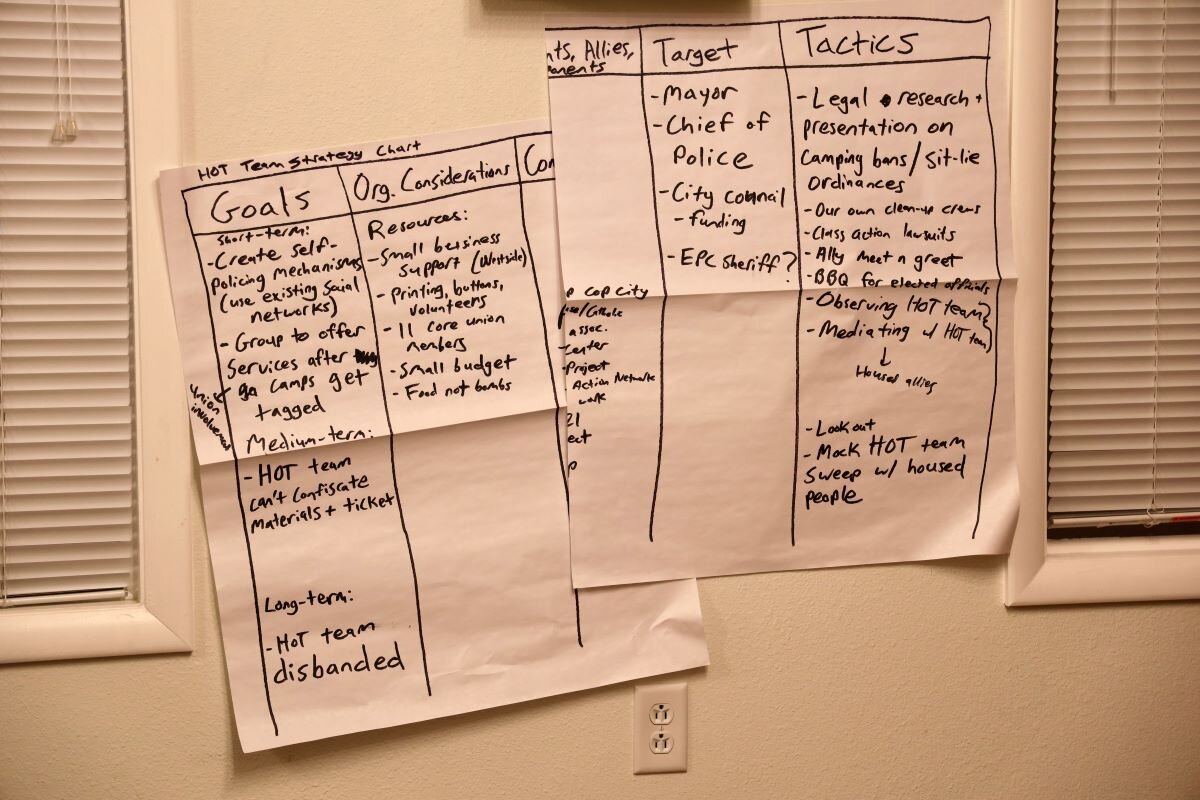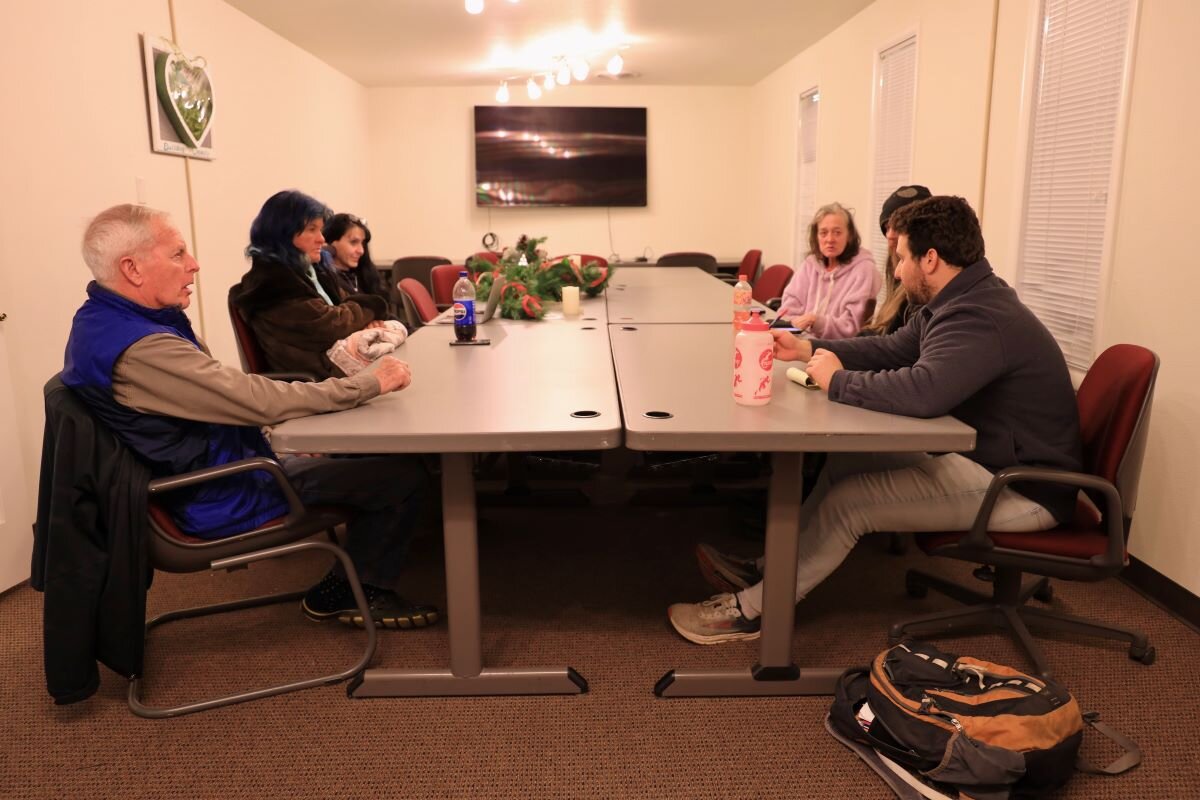Unhoused Colorado Springs residents create coalition to fight for their needs

COLORADO SPRINGS, Colo. — As the new mayor and City Council reach the six-month mark in Colorado Springs, members of the city’s unhoused population have formed a coalition to fight for what they see as injustices unique to their community.
“The ultimate goal is to get most of the homeless off the street and into housing,” said Shane Hood, a houseless man and one of the union’s leaders. “We also want to help people that are on the verge of becoming homeless from actually becoming homeless,” he said.
The Colorado Springs Homeless Union formed in November as an unofficial affiliate of the National Union of the Homeless, though the group hopes for more official standing in the future.
Coalition members announced the union Nov. 3, the same day Colorado Springs City Council discussed a proposed agreement with El Paso County that would allow city cleanup crews to conduct homeless sweeps outside of city limits. Since then, the group has met with City Council members, Chief Housing Officer Steve Posey and hopes to meet with Mayor Yemi Mobolade.

The Colorado Springs Homeless Union has five main goals: policing reform, free public transit, more affordable housing, more public restrooms and better maintenance of those restrooms and more public trash cans.
Photo: Chase McCleary, Rocky Mountain PBS
Although the group’s platform includes five living conditions the coalition hopes to see improvement on, Hood and other union members said they agree more humane treatment from police is their most urgent and important priority. Union members said their interactions with the Colorado Springs Police Department Homeless Outreach Team often feel unnecessarily cruel.
“It often feels like the HOT Team exists to destroy our lives,” Hood said. “They destroy what little we have.”
In previous interviews with Rocky Mountain PBS, Sgt. Olav Chaney — who supervises the team — said he takes a “tough love” approach for camping and trespassing, which are the most common crimes houseless people in Colorado Springs are cited for.
“We take more of that law enforcement approach where we say, ‘you cannot camp, we’re not going to allow you to camp and you cannot dirty this city up,’” Chaney said. “If we didn’t do what we did, it would blow up and get out of proportion with camps all over the place and trash all over the place.”
Goldsbury, Hood and Berry said they understand police have a job to do. They also agreed that they do not want to live surrounded by trash or crime. But they said treatment from police officers is often unnecessarily cruel.
When a houseless person is cited for camping, they are issued a citation to court. If they do not appear in court — and Municipal Judge Hayden Kane said 60% of houseless defendants do not — they are issued an arrest warrant and taken to El Paso County Jail.
The three union leaders said this cycle of tickets, court and trips to jail can be detrimental to a person’s ability to find permanent housing, which is why changing police policies is the union’s greatest priority.
“It feels like a critical component of any housing justice movement in the city,” said Max Kronstadt, a community organizer who helped the coalition get its footing. “It’s the most visible and most severe expression of the housing crisis.”

Members of the union discuss challenges and priorities.
Photo: Chase McCleary, Rocky Mountain PBS
The coalition has four other priorities to address in addition to policing reform: free public transit, more affordable housing, more public restrooms and better maintenance of those restrooms and more public trash cans. The union would also like the police department to give illegal campers seven days to move their belongings before risking a citation. Currently, campers have 24-hours to clear out.
Goldsbury said Posey — who has met with the coalition multiple times — has seemed to take their concerns seriously, which was a welcome surprise and the first time she said she has felt “heard” as a houseless person trying to communicate with city officials.
“At least we have their ear and they’re listening,” Goldsbury said. “It’s gone quite well so far, from what I can tell.”
Goldsbury, Berry and Hood also said they feel it is crucial to have those who have or are experiencing homelessness advocating for themselves.
“It shows the unique angle that we come from,” Hood said. “When someone else is speaking for you, they don’t know what you’ve been through.”
Alison Berg is a multimedia journalist at Rocky Mountain PBS. alisonberg@rmpbs.org.
